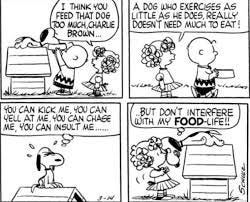Dear Tamar:
I'm tired of cooking time-consuming dinner! Please don't make me collect ten ingredients, figure out how to combine them, do prep, then cook, eat, and clean. Can you share with tired cooks how to roll off the log into dinner-eating that makes us happy and well fed? I don't want to fall back on pasta (white flour, no nutrients). Please!
-Slow Down in the Kitchen
Dear Slow Down,
I did crazy things while writing my first book. I’d promised my agent a “work plan” and instead sent her a fifty-page long script for the book, in which I went on adventures to make each point. (She wrote back: “I don’t know what this is. I guess just write the book?”) Michael Pollan—a constant mentor—published a New York Times Magazine piece about cooking, and I descended into a spiral of self-torment, convinced that my idea (a book about cooking) was being scooped by a famous writer.
I stopped speaking in the morning—to conserve my creative energy. (Sometimes I pantomimed. Sometimes I angrily answered questions by saying: “I can’t speak right now.”) One day, I emailed a fellow writer at 7 am, begging him to deliver me a flask of whisky at our shared writers’ space. I drank whisky and Muscle Milk, exclusively, for a day and a night. When I ran out of both, I found and ate someone’s leftover rice, topped with peanut butter and hot sauce. I stayed at my desk for 72 hours. I went to sleep for three hours, then took the subway to drop off a draft.
A few months after the book came out, I realized I’d had a choice—between doing things the hard way and doing things the easy way. And that I’d chosen the hard way at every juncture. I don’t think the book was improved by it—it would been at least as good if I’d talked to friends, drank less whisky, eaten more solid food.
I’ve written two books since, committed to doing it without equivalent anguish: I simply would not put myself through it. I chose the easy way as often as I could. I don’t always. I frequently put myself through unnecessary agony to arrive at the place I would have regardless. But I tell myself parables, and I try.
You have a choice. Here is the easy way: you declare that for dinner to be pleasurable, it must be a log roll. You simply will not put yourself through it. You refuse to collect ten ingredients. So you must cook individual ones, simply and well. You refuse to spend a lot of time prepping. So you must efficiently chop and boil, or chop and roast. You refuse to cook-and-clean and cook-and-clean: you’ll have to cook ingredients in batches, then assemble them into meals each day, or rely meals that are mostly assembly of raw and cured items. Both are fine, as is a combination.
Decide how often the comfort of a pasta dinner is acceptable. Once a week? Once every two? Then, apply the lesson of pasta—basing dinner on an accessorized, appealing grain—to a meal based on rice, or tortillas, or polenta, or arepas, or quinoa-farro-kamut-freekah-fonio-beans-lentils-split peas, or sourdough or sprouted seed bread. If your heart has begun to pound, because you’re wondering: But which meal based on rice or tortillas or polenta etc.? go back to your demands: a meal of simply boiled (and seasoned!) grains adorned with vegetables cooked in batches, and/or with items you bought.
Then, bring whatever vegetables are left to room temperature on their second or third day and turn them into a salad. Or add them to a frittata. Eat the frittata as a sandwich. (Leftover grains also make a good salad.) When it occurs to you, cook six eggs in their shells. Peel them and keep them for halving and sprinkling with flaky salt and eating sliced on toast with pickled onions, or on a bowl of grains. Or chop the eggs and mix them with lemon juice and parsley and olive oil and spoon them over simply cooked vegetables. Become a regular at your local cheesemonger, buying two cheeses a week. Treat them as the main dish, beside vegetables and grains and bread and lettuce and olives. Also, become a connoisseur of tinned fish, deciding whether you prefer mackerel or sardinillas on your rye crisps.
The hard way, just so you know I have good enough vision to see it, too, is to scroll through recipe websites or Instagram accounts, looking for recipes that probably won’t take that long. And then choosing one, or throwing in the towel and ordering in. Or making a new resolution every week—like to follow a meal plan, or limit yourself to recipes that are 30-minutes-or-less, or to eat some of your big batch of lentil stew at least three nights a week. Or sighing and feeling that because cooking is virtuous, it has to be hard.
Dear cook, the wonderful thing about slowing down is that you’ll be better at observing. You’ll see more, and you’ll find ideas and solutions that haven’t occurred to me. Remember that everyone else is racing around, not looking at you and judging you for making meals a series of picnics that are easy to enjoy. If they do stop to notice, they’ll copy you. Your only real mandate is to keep moving, at whatever pace makes you happy: as long as you don’t stop dead in your tracks, you and the world will keep changing together, with surprising solutions appearing at each turn.




And why on earth, if she's doing the cooking (I'm assuming it's a she, it most often is), is she also doing the clean-up? Where are the rest of her tribe?
take a deep breath and speak these words out loud: I HAVE TIME. make it a life long mantra. resist being driven. chew your food twenty five times before swallowing😄enjoy LIFE.